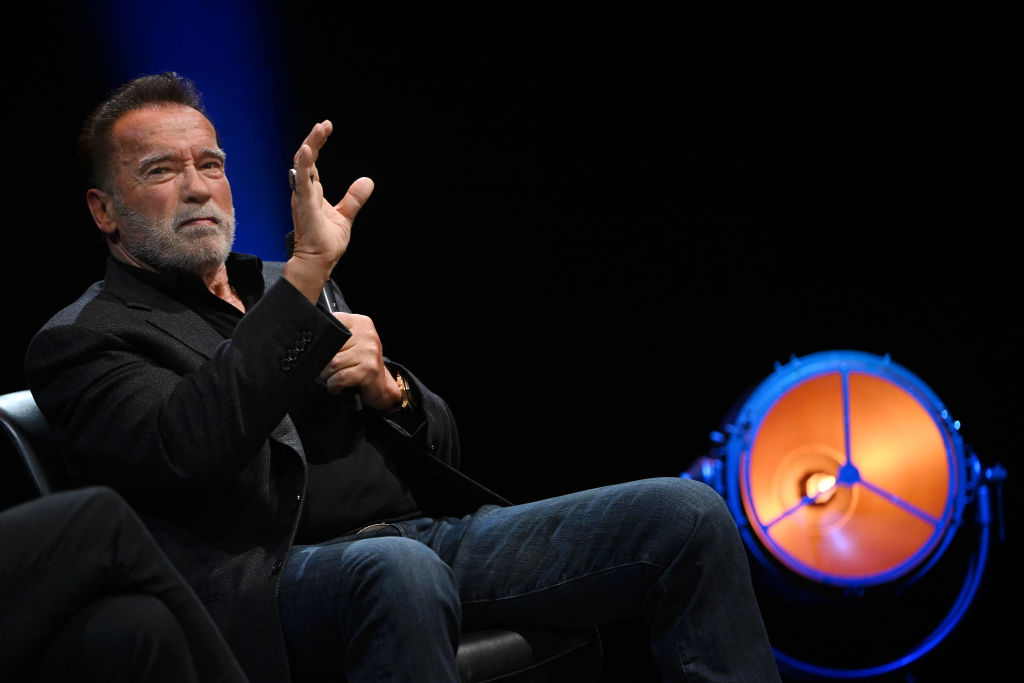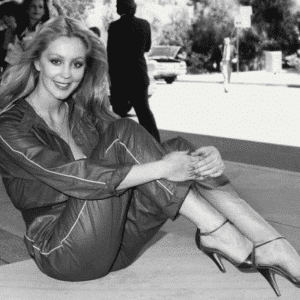Arnold Schwarzenegger, one of the most recognized faces in Hollywood, recently shared his unfiltered views on the topics of heaven, religion, and what happens after we die. In a heartfelt and revealing discussion with long-time friend and fellow actor Danny DeVito, Schwarzenegger opened up during an interview for Interview Magazine, offering perspectives that are bound to provoke thought and stir debate.
From his role as the invincible Terminator to his time as California’s governor, Schwarzenegger’s life has been nothing short of extraordinary. But despite his legendary status, when it comes to the afterlife, Schwarzenegger’s views are strikingly grounded and refreshingly honest.
Arnold Schwarzenegger on Life, Death, and the Afterlife

During the interview, Danny DeVito, known for his roles in Matilda and It’s Always Sunny in Philadelphia, asked Schwarzenegger about the inevitable—what lies beyond life. In a response as straightforward as his iconic one-liners, Schwarzenegger didn’t hold back.
“It reminds me of Howard Stern’s question to me,” Schwarzenegger recalled. “’Tell me, governor, what happens to us when we die?’ I said, ‘Nothing. You’re six feet under. Anyone that tells you something else is a f***ing liar.'”
Schwarzenegger’s bold stance on the afterlife reflects his skepticism towards conventional religious beliefs surrounding death. His statement reveals a deep realism, one that contrasts sharply with traditional notions of heaven and eternal life.
The Terminator’s Skepticism About Heaven
For many, the idea of heaven offers comfort, especially in the face of loss. But Schwarzenegger doesn’t find solace in the thought of reuniting with loved ones after death. Instead, he views such beliefs as fantasy.
“When people talk about, ‘I will see them again in heaven,’ it sounds so good, but the reality is that we won’t see each other again after we’re gone. That’s the sad part,” he admitted. “I know people feel comfortable with death, but I don’t.”
It’s a raw and vulnerable confession from a man known for his larger-than-life persona. Schwarzenegger’s thoughts on the subject, while bleak to some, offer a no-nonsense perspective on mortality that challenges popular beliefs.
A Different Take on Heaven: Love, Memory, and Legacy
Although Schwarzenegger may not subscribe to the traditional religious concept of heaven, he has developed his own unique interpretation of the afterlife. For him, heaven is not a place we go after death, but rather the memories and legacy we leave behind in the minds of those who loved us.
“To me, heaven is where I put a person who I love dearly, who is kind, who is generous, who made a difference in my life and other people’s lives,” he explained. “I keep them in a spot in my head, like that front row that you have of all of your friends. And you always have a good feeling when you think of them.”
Schwarzenegger’s personal heaven, it seems, is rooted in the impact we have on the people around us and how we live on through memory and affection. It’s an idea that resonates deeply with his fans and adds a layer of complexity to the conversation about what happens after we die.
From Catholic Upbringing to a New Perspective
Interestingly, Schwarzenegger’s current views on heaven and the afterlife differ significantly from his religious upbringing. Raised in a devout Catholic household, Schwarzenegger regularly attended church and received his education in Catholic schools. His early life was steeped in religious tradition, and much of his moral compass was shaped by these teachings.
“I was raised Catholic, attending church regularly and even receiving my education in Catholic schools,” he shared in a 2021 interview. “I delved into the Bible and absorbed the teachings of my catechisms.”
One phrase from his Catholic upbringing continues to resonate with him today: “a servant’s heart.” This phrase, as Schwarzenegger explained, signifies the act of serving a cause greater than oneself. It’s a concept that has guided much of his public life, from his role as governor to his philanthropic efforts.
Schwarzenegger’s Call for Public Service and Higher Ideals
Despite his current skepticism about religion and the afterlife, Schwarzenegger still holds on to the values he learned as a young Catholic. In 2021, he urged elected officials to adopt a “public servant’s heart,” a call for leadership that transcends self-interest.
“What we need right now from our elected representatives is a public servant’s heart,” Schwarzenegger said. “We need public servants that serve something larger than their own power or their own party. We need public servants who will serve higher ideals, the ideals in which this country was founded, the ideals that other countries look up to.”
Schwarzenegger’s message, whether addressing faith, life after death, or the role of public service, reflects a deep commitment to leaving the world a better place. It’s a reminder that while we may never know what happens after we die, we have the power to shape the legacy we leave behind.
Schwarzenegger’s Honest Take on Mortality

As a public figure who has faced numerous personal losses—particularly within the bodybuilding community—Schwarzenegger’s thoughts on death and the afterlife carry a special weight. The deaths of close friends have prompted him to think deeply about what it means to be remembered, and his reflections reveal a man unafraid to confront life’s toughest questions.
Ultimately, Schwarzenegger’s candidness about death, heaven, and legacy offers a refreshing departure from the typical narratives surrounding these topics. His view may not align with traditional religious beliefs, but his focus on living a meaningful life resonates universally.
Schwarzenegger’s Philosophy on Life and Legacy
Arnold Schwarzenegger’s candid conversation with Danny DeVito sheds light on his unique perspective on heaven, religion, and the afterlife. While he may not believe in the conventional idea of an afterlife, he finds comfort in the memories of those who have made an impact on his life. For Schwarzenegger, true immortality lies in the legacy we leave behind, the people we love, and the lives we touch.
In a world full of uncertainty, his philosophy offers a practical and deeply human approach to confronting our own mortality. After all, as Schwarzenegger himself might say, “the future is not set”—but we have the power to shape the present.


